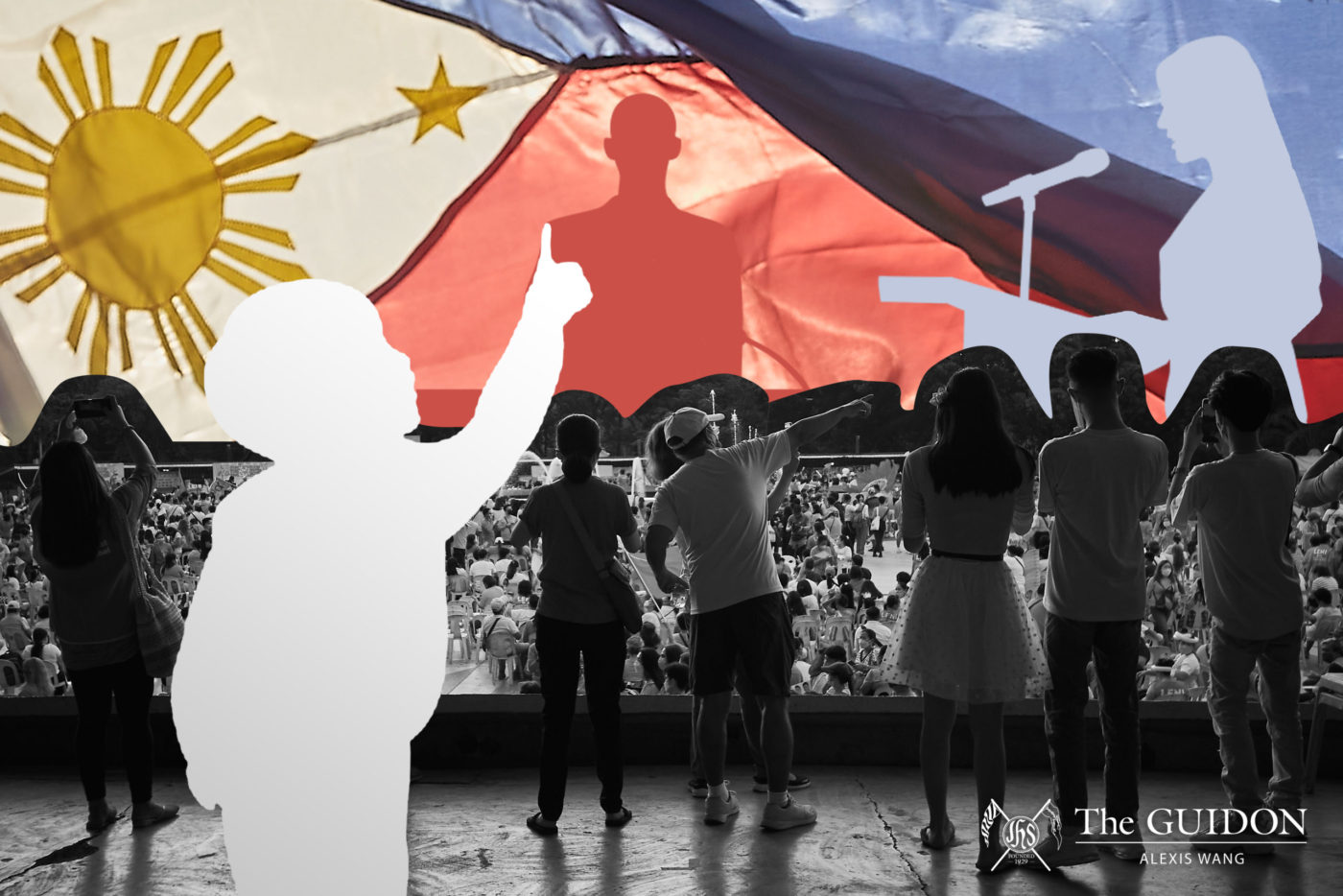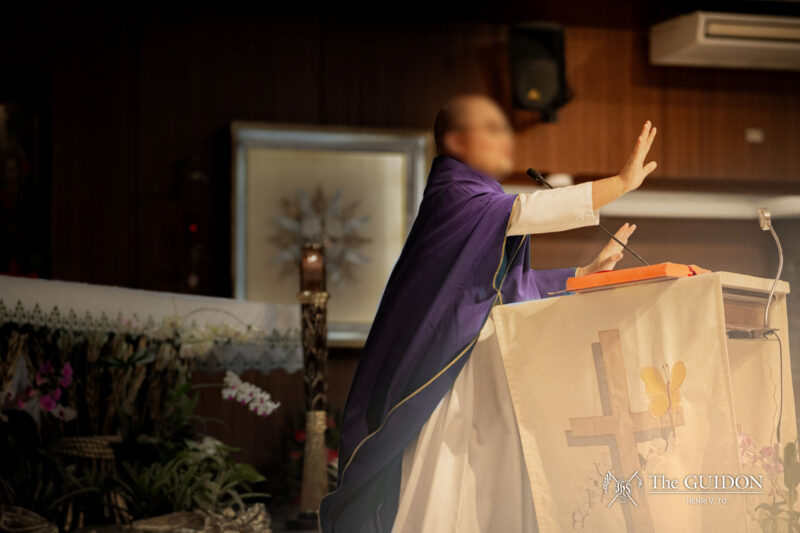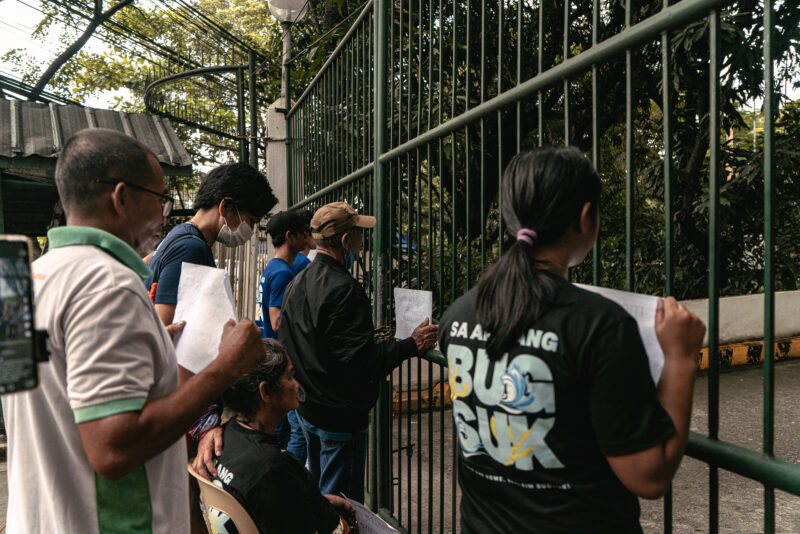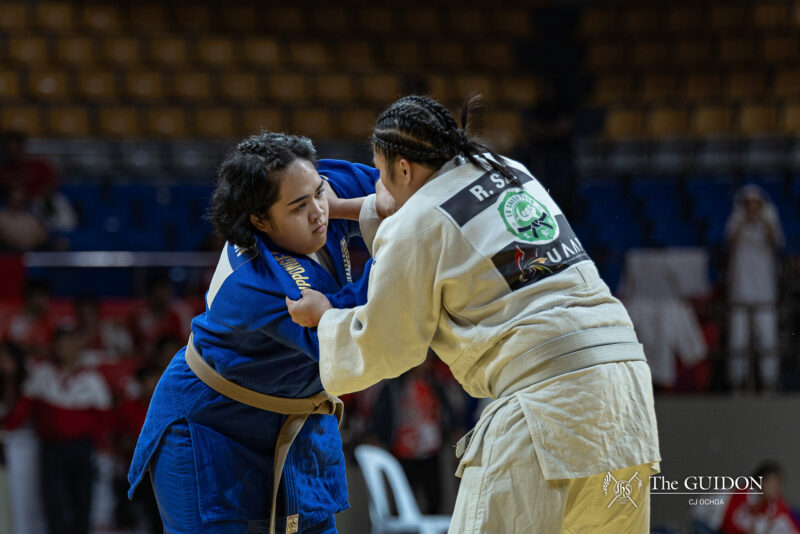As the elections continue to shine the light on candidates, the role of those who “inherit” the spotlight must be shown.
THE CLOSE-KNIT ties that reside within Filipino homes manifest in various forms, including the strong valuing of family intervention, three-generation homes, and principles such as utang na loob and pakikisama (debt of gratitude and fellowship). However, a full appreciation of Filipino family culture requires recognizing the emphasis on passing torches down each generation—involving properties, traditions, and obligations.
With the prevalence of political dynasties in the country, it would not be daft to infer that power is one such torch for families involved in government.
In a collectivist society that firmly believes apples shouldn’t fall far from the tree, it’s easy to pigeonhole politicians’ relatives with their more influential kin without considering that they may hold separate political views. With the campaigning season for the forthcoming elections well underway, individuals reveal their impressions of life with powerful folks.
Spark in their heads
Life as part of a politically influential family comes with its own conveniences, but it can also be riddled with discordance. Theo*, the son of two municipal officials and brother to a government hopeful, was initially unaware of his unique familial privileges. “I always saw it as normal because I didn’t know anything other than that life. I thought every other kid was going to the parties with these old, important people,” he shares.
Likewise, heiress to a line of national politicians Ella* shared Theo’s detachment to reality in her youth, growing up not fully understanding the gravity of the numerous political gatherings she accompanied her family to.
As they matured, both Ella and Theo learned to better grasp their own privileged statuses and their kin’s authority beyond their roofs. For Theo, taking sociology classes and noticing the perks his parents’ positions afforded him–such as being able to skip long queues and run red lights–were enough to make him conscious of his family’s above-average stature. In Ella’s case, it was seeing her relatives on the news that prompted the realization.
Unfortunately, a greater awareness of their families’ situations introduced a sense of guilt into Theo and Ella’s lives. Theo expresses feeling ashamed whenever his parents would use their name and connections to escape uncomfortable situations. “It’s hard because I want to be equal with other people,” he remarks.
Ella also frequently contemplates an inconspicuous life, though her remorse toward her family’s political involvement goes beyond simply being advantaged. Rather, it extends to the perceived dishonesty and wrongdoing in her relatives’ ways.
“I would often question what we had in life—where did I think they would get the money for [things], and I feel bad living a good life, knowing how they got the funds for [our luxuries],” she laments. Hence, Ella expresses a bitter distaste for political dynasties despite being in one herself, frustrated at her family’s perpetual recycling of platforms never to be pursued.
The disjunct between Ella’s principles and her relatives’ decisions fuels her desire to dissociate. “I’m not even proud of calling them family members. I don’t even want to be seen with them,” she comments.
On the other hand, Theo does not feel restrained by the weight his family name carries: “I always saw myself as separated from my family’s image. I don’t care who people think I am because I know who I am.”
Theo and Ella possess a common desire for genuine and righteous leaders in the country, even though it puts them at odds with their influential relatives. “I want people in the government to serve the public, but they treat the public like [their] servants. We need a government that’s for the people,” Theo points out.
Increasing friction
Besides the moral dissonance that politicians’ children go through, there exist other struggles that come with the inherited position. Theo notes how the pressure to keep up his family’s image puts career expectations on him to go into law or medicine.
However, Theo describes having a distant relationship with his family, who he only sees during mealtimes. “Especially during election period, they would never be at home so I grew up closer to my siblings and the katulongs [household helpers] in my house,” he recalls.
On the other hand, Ella feels that interactions with her political parent’s side are generally toxic. For the sake of their family’s image, she recalls instances of asking their approval before deciding what to wear and what to eat.
Ella also shares how her family’s politics follows her to school. “In [people’s] minds, politicians can do a lot of things. Even if I’m just in school trying to learn, [they] are scared to approach me,” she says. She notes how this weariness and similar special treatment is what she’s trying to avoid as she wants to “be like everyone else.”
Beyond this, she describes how family gatherings pressure her to “put on a smile” and how this caused her anxiety in expressing her own opinions. “I think my own beliefs would make the family hate me, so I’d rather not tell them something they’re not willing to accept,” she points out, leading her to maintain a distance from politics to find a sense of peace.
Managing the flame
Whether it be recognizing morals or setting boundaries, reconciling a situation that is beyond one’s complete control is a tall task for anyone to bear.
“I got tired of following [my father]. You feel you need to show up and contribute to the family… that ruined a lot of good relationships that could have been there,” Ella explains. Due to this immense burden, she feels they lost their family bond.
During overwhelming political events, she shares how she would go to the washroom in order to calm herself down. She elaborates, “It’s not as easy as just smiling to cameras and smiling to gatherings. It is also the pressure that you have to do something, that you have to contribute to the family.”Theo feels generally weary, yet indifferent to his family’s situation. He attributes this to his stoic nature and how, at the end of the day, he knows his family members are good people. However, Theo emphasizes that forging who he is outside his family has been crucial in reconciling with his situation: “I try to make an identity for myself outside of my family. I want to be known more than that politician’s kid. I am way more than that.”







